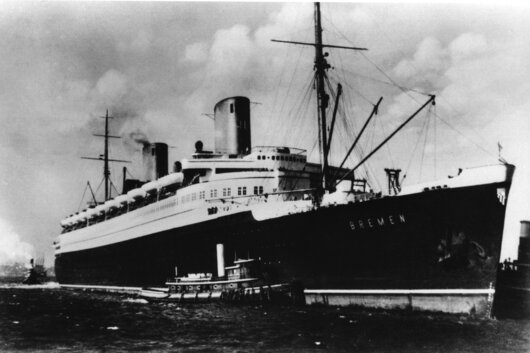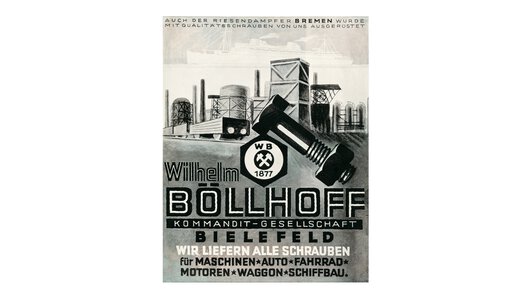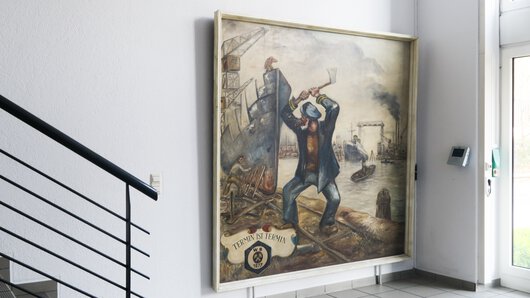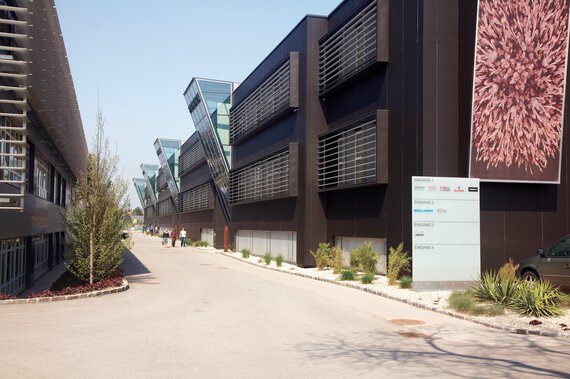The 1920s: Böllhoff on the high seas
Fasteners for the fastest passenger ship of the late 1920s

Challenging times for Germany – both economically and socially
After its military defeat in World War I and the resulting fall of the German Empire, Germany was up against the wall economically in the early 1920s. To be able to meet the reparation demands, the German government put more and more money into circulation – even if there was no material equivalent in the country. The result: hyperinflation in the fateful year of 1923. In December 1923, 1 US dollar was worth a whole 4.21 trillion marks. Incredibly high prices were the result. An egg, for example, cost a whopping 320 billion marks in Berlin at that time. Only by introducing a new currency, the Rentenmark, could the extreme decline in the value of money finally be slowed down.
New German optimism and “the major order” for Böllhoff
What followed these crises was a new German optimism from 1924 onwards. Germany increasingly returned to its inventive spirit and a new economic rise began. Crucial to this rise were the German ships that now sailed the seven seas again.
In August 1928, a fast steamer with state-of-the-art features and room for over 2,200 passengers was launched: the Bremen, a prestige project of the German shipyards. For the second family generation led by Josef Böllhoff, this ship was “the major order”. The steamer, which was over 280 metres long, was entirely held together by fasteners from Böllhoff. On her maiden voyage across the Atlantic in 1929, the Bremen even won the Blue Ribbon, making her the fastest passenger ship in the world for some time.

“Deadline is deadline”
In the late 1920s, the shipping industry was Böllhoff’s most important customer segment – with a share of sales of around 80 to 90 percent. Our company enjoyed a high level of trust from the shipyards at that time, as we were not only able to reliably deliver quality and quantity, but also to meet the delivery deadlines which are very important in shipbuilding.
Josef Böllhoff always summed up the great importance of timely delivery with his saying “deadline is deadline”. The essence of this statement: A ship must always be launched on time. For a trading company like Böllhoff, the delivery date to the customer therefore is of great importance and must be met at all times. As a constant reminder of that and as additional motivation for his employees, Josef Böllhoff had the saying “deadline is deadline” ("Termin ist Termin" in German) captured in a painting. This painting still hangs in the entrance to the logistics department at the Böllhoff headquarters in Bielefeld today.



